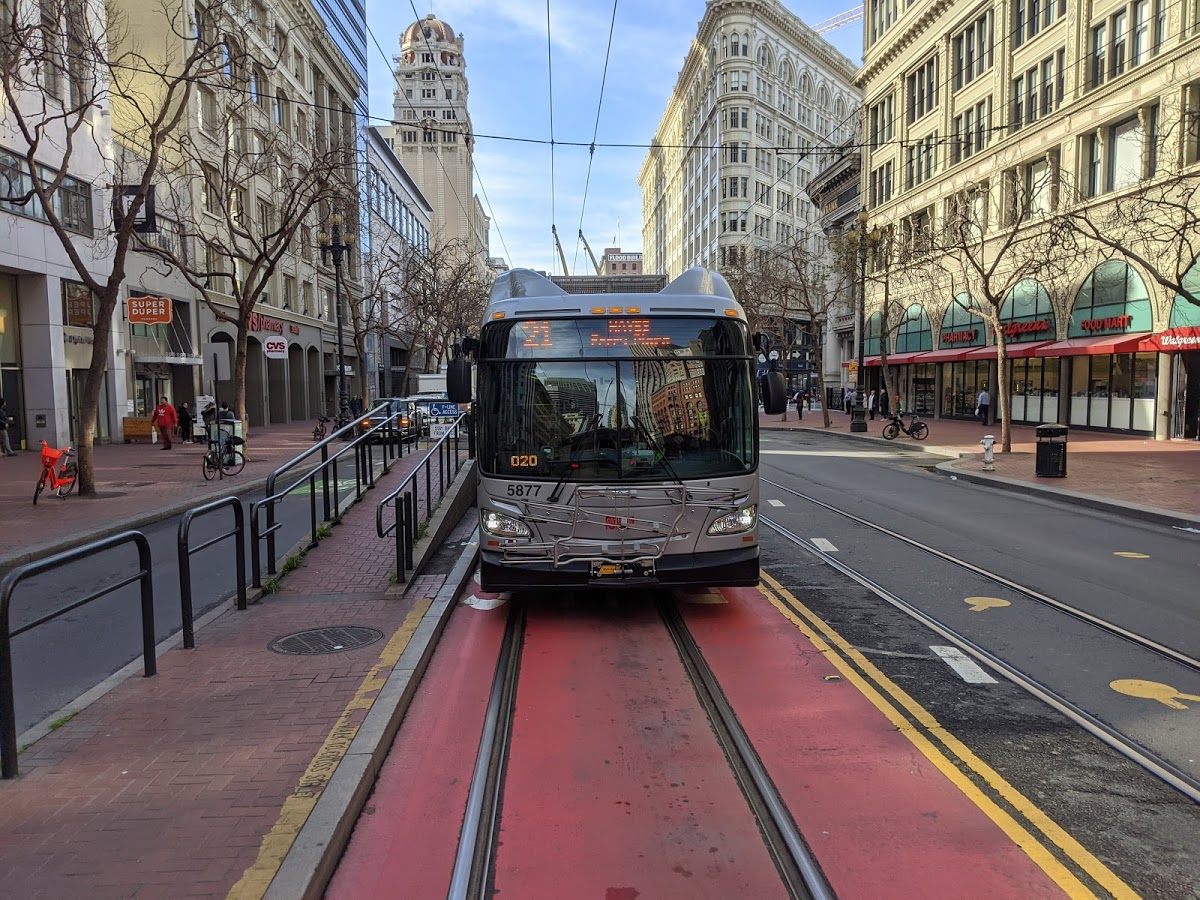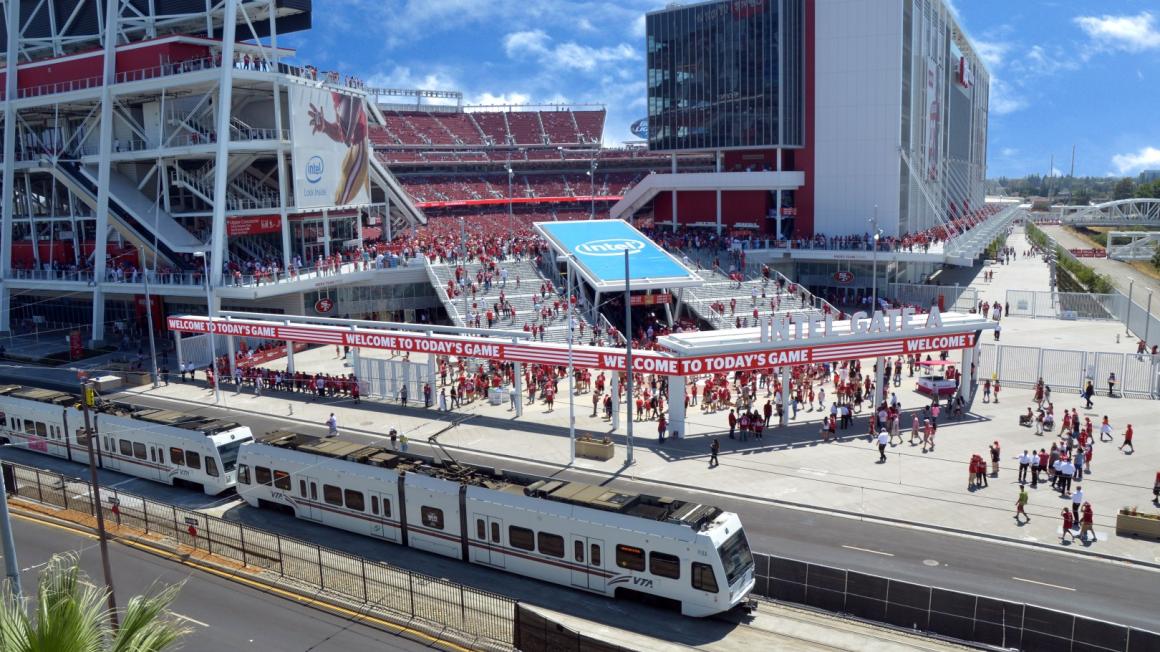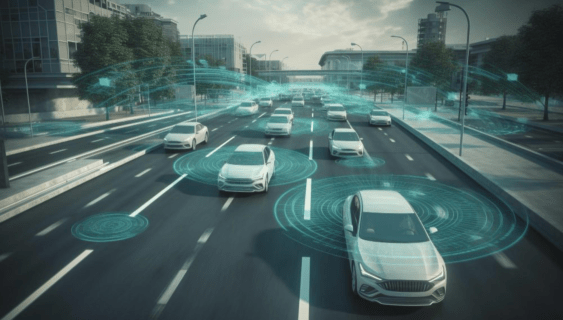Combining battery technology with existing trolley bus infrastructure is the best way for San Francisco to achieve zero emissions and a robust transit service, according to a study released Wednesday by The Climate and Community Project.
From the announcement of the report:
“San Francisco Muni Electrification Alternatives Analysis” shows that maintaining and expanding San Francisco’s trolleybus fleet with In Motion Charging (IMC) technology could be the fastest and most efficient way to decarbonize the San Francisco Municipal Transportation Agency’s (SFMTA) system. The study provides strong evidence that, compared to battery buses, leveraging the City’s existing trolley infrastructure is the cheaper, more resource efficient, and better-suited option to decarbonize the fleet and take diesel off the streets.
Currently, San Francisco is testing battery-powered buses with the hopes of eliminating emissions from its fleet, which still includes diesel power. However, SFMTA is also looking at replacing historic trolley-bus lines with these battery buses, even though trolley-buses already use zero-emission technology, powered by overhead wire. "About two years ago I came across a capital plan showing that they were going to remove the trolley buses from the fleet," said San Francisco Electrical Construction Industry Research & Advocacy Director Alex Lantsberg in a phone interview with Streetsblog about the study.
This seems to echo the historical error made by San Francisco and other American cities after WWII when they removed electric rail and trolley bus systems and replaced them with diesel buses.
Lantsberg explained that some at the city want to get rid of the wires because of associated maintenance costs and because they make rerouting buses and redesigning streets more complicated.
But, he says, that is short sighted. He explained--and his assertion is supported by the study--that buses that run only on batteries will be out of service for several hours each day for recharging, which means the agency will need more buses to provide the same level of service. In addition, buses have to expend more energy accelerating when they carry heavy battery packs. And battery-only buses will do more damage to roads because they are heavier.
SFMTA's existing trolley buses can already go a few miles on small battery packs designed for emergency use. "They can only run two miles off wire," said Lantsberg. His group is advocating for using trolley buses that have more substantial battery packs than the existing fleet and that can be charged while they're running in service. Then the buses can go many miles into non-electrified territory as well. They can also run when sections of wire are under maintenance.
In other words, the idea is to leverage and expand, rather than remove, the existing overhead trolley wire network. That will allow the city to reach zero emission transit more quickly than buying thousands of untested battery-only buses, many of which would just replace buses that are already zero-emission vehicles. Also from the study:
Unlike traditional trolleybuses, IMC trolleybuses, which are equipped with onboard batteries, do not need overhead wires for their entire routes, allowing for more flexibility in infrastructure and routes while reducing
costs. A 33 percent increase in overhead wires would allow the city to more than double its zero emissions bus fleet, while adding 210 miles of electrified service.
"The trolley system is this huge asset that we already have," said Lantsberg. "We like battery buses. And we like electric vehicle charging, but we think that a trolley bus is a superior mode."
For more, check out the entire study.






